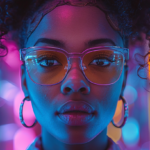How can translators stay relevant in the AI-dominated era?
The golden times of human translation are long gone.
At least, that’s what everyone—from AI enthusiasts to large Language Service Providers—is trying to sell.
But you don’t have to buy it.
While the rise of AI has undoubtedly transformed the translation industry, it hasn’t led to the extinction of the human translator species (yet). In fact, the AI revolution creates an opportunity to redefine your role, showcase your expertise, and thrive in a new landscape.
So, how can you stay relevant in an AI-dominated era?
Here are two game-changing strategies to keep those lucrative projects flowing into your inbox.
1. Stick to your niche
Specialization is your superpower.
Instead of spreading yourself thin across general projects, focus on becoming a go-to expert in a specific field. Choices are many: luxury fashion, medical research, patents, or even niche markets like winter sports or high-end swimming gear.
But don’t stop at mastering the jargon. Dive deeper. Understand your niche’s culture, audience, and trends. Show your clients that you don’t just speak their language, you live it.
For example, if you decide to specialize in luxury brands, remember to familiarize yourself with their values, storytelling style, and customer expectations. When you demonstrate this level of commitment, you become an invaluable partner rather than just another translator.
2. Embrace the role of a cultural consultant
Your linguistic and cultural expertise goes far beyond translation. As globalization accelerates, businesses need guidance to navigate cultural nuances, avoid faux pas, and connect authentically with local audiences.
This is where you come in. As a cultural consultant.
What exactly does this role entail?
Here are some possibilities:
- Cultural audits: Help clients review their content for cultural sensitivity to avoid embarrassing and costly mistakes.
- Localized marketing advice: Support clients in crafting marketing campaigns that resonate with the local audience, from slogans to visual elements.
- Image consultation: Advise on culturally appropriate images to align with local values and preferences.
- Cultural guides: Develop detailed guides that cover everything from business etiquette to consumer behavior in specific markets.
- Real-time cultural consultation: Offer on-the-spot advice for business negotiations, campaign launches, or critical communications.
By stepping into this role, you transform yourself into a trusted advisor rather than a service provider. You’re someone businesses can rely on for their long-term success.
Final thoughts
Yes, AI is reshaping the translation industry. But rather than being a threat, it’s an invitation to adapt, evolve, and expand your skillset. By niching down and embracing the cultural consultant role, you’ll not only stay relevant, but also position yourself as a must-have partner.
Over to you
What’s your plan for staying ahead in the AI era? Have you identified your niche? Or are you ready to pivot into a cultural consulting role?


